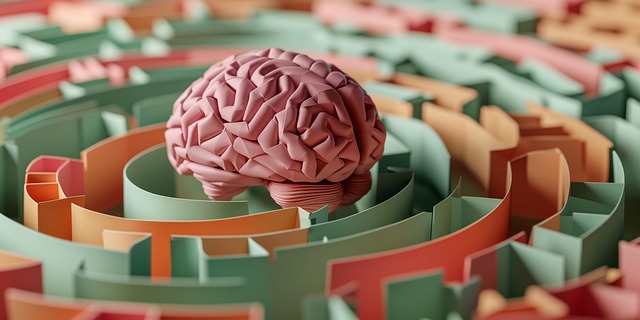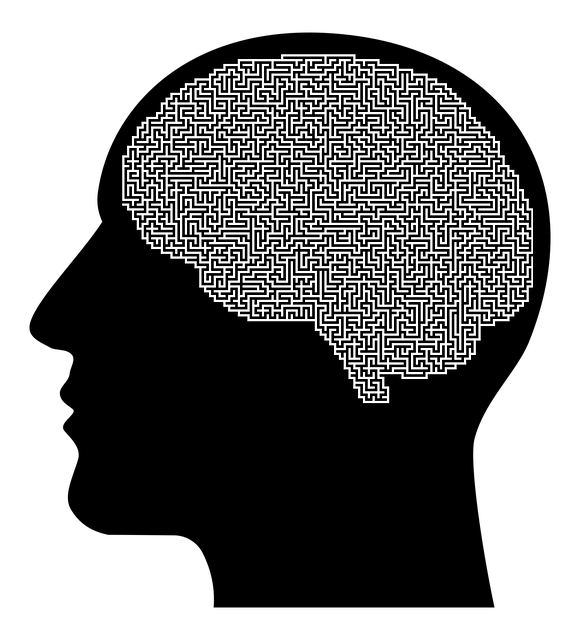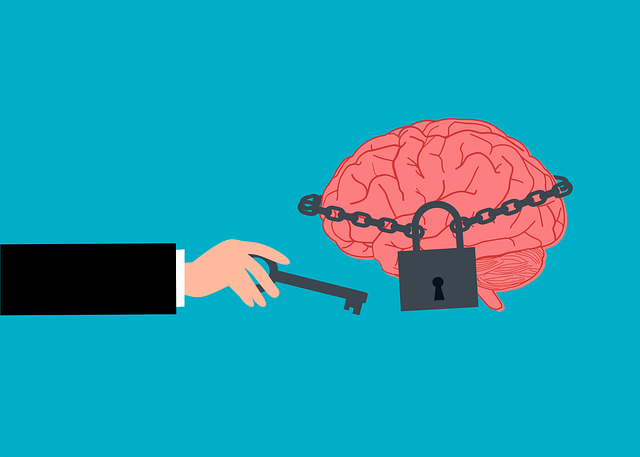In the Centennial era, mental health care prioritizes inclusive, culturally sensitive approaches like Centennial American Sign Language (ASL) Therapy. This innovative method utilizes non-verbal communication channels to improve access and effectiveness for deaf and hard-of-hearing individuals. By integrating ASL into therapy, it bridges communication gaps, respects cultural backgrounds, and enhances self-esteem. The complex process of mental illness assessment is simplified through holistic practices that consider personal experiences, communication methods, and cultural nuances. Effective treatments include traditional talk therapy, crisis intervention, and personalized recovery plans involving community resources and family engagement. Centennial ASL Therapy centers provide specialized programs, fostering a supportive environment for sustainable mental wellness within the deaf community.
In the contemporary, ever-evolving landscape of mental health, navigating diagnosis and treatment is more complex than ever. This comprehensive guide, tailored for the Centennial era, explores crucial aspects of mental illness management. From understanding diverse diagnoses using Centennial American Sign Language (ASL) therapy to tackling assessment challenges, it delves into effective treatments, including innovative ASL-based approaches. Additionally, it highlights the significance of community resources and family engagement in fostering long-term recovery journeys.
- Understanding Mental Health Diagnoses: A Comprehensive Guide for the Centennial Era
- The Role of American Sign Language (ASL) Therapy in Diagnosis and Treatment
- Navigating the Complexities: Challenges in Accurate Assessment and Diagnosis
- Effective Treatment Options: From Traditional Psychotherapy to Innovative ASL-Based Approaches
- Building Support Systems: Community Resources and Family Engagement for Long-Term Recovery
Understanding Mental Health Diagnoses: A Comprehensive Guide for the Centennial Era

In the Centennial era, understanding mental health diagnoses is more vital than ever. The landscape of mental healthcare has evolved significantly, embracing innovative approaches like American Sign Language (ASL) therapy to cater to diverse patient needs. This comprehensive guide aims to demystify diagnostic processes and navigate individuals towards effective treatment options. By recognizing that emotional healing processes often intertwine with self-esteem improvement and cultural sensitivity in mental healthcare practice, we can foster more inclusive and compassionate support systems.
Centennial American Sign Language Therapy plays a pivotal role in this context, offering non-verbal communication channels that can be particularly powerful for individuals who find verbal expression challenging. This therapeutic approach not only enhances accessibility but also respects the unique cultural backgrounds of patients, ensuring tailored care that resonates with their personal experiences. Embracing these modern tools and practices is crucial in creating a supportive environment where mental health concerns are addressed holistically and effectively.
The Role of American Sign Language (ASL) Therapy in Diagnosis and Treatment

The integration of American Sign Language (ASL) therapy into mental healthcare practices is a growing trend, offering valuable assistance to deaf and hard-of-hearing individuals navigating their mental wellness journey. Centennial American Sign Language Therapy plays a pivotal role in this process by providing culturally sensitive care tailored to these unique communities. With effective communication being a cornerstone of successful diagnosis and treatment, ASL therapists bridge the gap between patients and healthcare providers.
This approach not only enhances access to mental health services but also ensures that cultural nuances are respected and understood. The Mental Wellness Podcast Series Production can greatly benefit from featuring stories of ASL therapy’s impact, highlighting its potential to revolutionize mental healthcare by fostering inclusivity and ensuring everyone receives the support they need for their mental wellness.
Navigating the Complexities: Challenges in Accurate Assessment and Diagnosis

Navigating the complexities of mental illness assessment and diagnosis can be a daunting task for both individuals seeking help and healthcare professionals. In a world where mental health is increasingly recognized, the process often involves a labyrinthine journey filled with challenges. One significant hurdle is the vast spectrum of symptoms and their potential underlying causes, making accurate identification a delicate process.
Centennial American Sign Language Therapy offers a unique perspective in this domain. By incorporating self-awareness exercises and promoting emotional well-being promotion techniques, therapists can facilitate a more nuanced understanding of an individual’s mental wellness. This holistic approach ensures that diagnosis considers not just symptoms but also the person’s cultural background, communication preferences, and personal experiences, ultimately leading to more effective treatment plans.
Effective Treatment Options: From Traditional Psychotherapy to Innovative ASL-Based Approaches

In the realm of mental illness diagnosis and treatment, a diverse array of effective options are available today. Traditional psychotherapy, long a cornerstone of care, continues to prove beneficial for many individuals. This approach leverages talk therapy techniques to help patients explore thoughts, emotions, and behaviors in a safe, supportive environment. However, innovative treatments like Centennial American Sign Language (ASL) Therapy are also gaining traction. ASL-based approaches offer unique advantages by integrating non-verbal communication methods, fostering empathy building strategies that transcend verbal barriers and cater to the needs of Deaf or hard-of-hearing individuals.
Beyond traditional and ASL-focused therapies, crisis intervention guidance plays a crucial role in mental health navigation. This immediate support is vital for managing acute episodes and preventing escalating risks. Mental health professionals also employ risk assessment techniques to identify and mitigate potential dangers, ensuring a comprehensive and personalized treatment plan tailored to each patient’s unique needs. Effective strategies include identifying warning signs, developing safety plans, and providing access to appropriate resources, thereby enhancing the overall effectiveness of mental illness diagnosis and treatment.
Building Support Systems: Community Resources and Family Engagement for Long-Term Recovery

Building support systems is an integral part of navigating mental illness and fostering long-term recovery. Community resources play a pivotal role in this process, offering various programs and services designed to aid individuals on their path to wellness. Organizations like the Centennial American Sign Language Therapy center provide specialized support, catering to unique needs within the deaf or hard-of-hearing community. These resources offer not just language interpretation but also therapeutic interventions tailored for specific challenges.
Engaging family members in the recovery process is another key strategy. Family dynamics can significantly influence an individual’s mental health journey. Encouraging open communication and incorporating self-awareness exercises, emotional regulation techniques, and resilience-building activities within the family unit can create a supportive environment. This collaborative approach ensures that the person with a mental illness receives holistic care, addressing both their immediate needs and long-term goals for recovery.
In the centennial era, navigating mental health diagnoses and treatment is more complex than ever. However, advancements in fields like Centennial American Sign Language (ASL) Therapy offer innovative approaches to diagnosis and treatment, enhancing accessibility and effectiveness. By understanding the nuances of mental health, leveraging community resources, and fostering family engagement, we can create a supportive landscape for long-term recovery. This comprehensive guide highlights the importance of various treatment options, ensuring individuals receive the best care possible.














